 Joy or sorrow, resentment or pleasure,love and dislike - the feelings and emotions that a child experiences are as strong and varied as those of an adult, but he is not always able to express them properly. Most of the relationship between a newborn and his mother is expressed in looks. The baby blinks, moves his arms, opens his mouth, and the mother responds with affection, conversations, a quiet melodic song, etc. The main moment of communication during this period is feeding, which is why breastfeeding is so important, as it promotes a deep emotional connection between mother and child. Darwin noted that the language of emotions unites countries and peoples, regardless of their history, traditions and culture. A child naturally strives to express himself in this language, but he does not always succeed, and this problem can haunt him for many years and negatively affect his psyche in the future. Therefore, it is very important for parents and all adults around him to help the child learn to understand and express his feelings and emotions, both positive and negative. Starting from 3 months of birth you can visit with your baby
Joy or sorrow, resentment or pleasure,love and dislike - the feelings and emotions that a child experiences are as strong and varied as those of an adult, but he is not always able to express them properly. Most of the relationship between a newborn and his mother is expressed in looks. The baby blinks, moves his arms, opens his mouth, and the mother responds with affection, conversations, a quiet melodic song, etc. The main moment of communication during this period is feeding, which is why breastfeeding is so important, as it promotes a deep emotional connection between mother and child. Darwin noted that the language of emotions unites countries and peoples, regardless of their history, traditions and culture. A child naturally strives to express himself in this language, but he does not always succeed, and this problem can haunt him for many years and negatively affect his psyche in the future. Therefore, it is very important for parents and all adults around him to help the child learn to understand and express his feelings and emotions, both positive and negative. Starting from 3 months of birth you can visit with your baby.The center will help your child grow up healthy and happy! The survival of a newborn directly depends on the ability to express what he feels. He has two main emotions - suffering and pleasure. When a baby feels any anxiety - hunger, cold, pain, he immediately lets you know by crying. Mom or another adult, in response to his signal, eliminates the cause that caused this unpleasant sensation, and the child immediately calms down. If he does not see the desired reaction in response to his demands, his call for help becomes more and more insistent. And based on how his demands are perceived, whether they are satisfied or ignored, encouraged or rejected, the baby will build other, more complex emotional signals. Their diversity and his ability to express his feelings grow with him. By one and a half months, the child begins to consciously smile for the first time, and by four or five - to show his displeasure with irritated crying or shrill angry cries. Thus, the general excitement characteristic of a newborn at the moment of anxiety is gradually replaced by increasingly specific and conscious reactions, varying depending on the emotions experienced. And here the influence of parents and other adults becomes especially important in terms of how the child evaluates his experiences, and, consequently, for the development of the tendency to express or suppress them. As a rule, adults try to divide his feelings into positive ones - joy, satisfaction, love, gratitude - and in every possible way encourage their external manifestations, and negative ones - anger, envy, jealousy - which, on the contrary, are met with obvious disapproval. However, such an assessment is typical for adults, and only for them, since the child himself is not yet able to see his feelings from an ethical point of view, he simply expresses them! In this - his first test of relations with the outside world, therefore, the extent to which the baby is given the opportunity to express what he feels depends on his psychological development. In some cases, adults not only try to suppress his negative emotions, but also disapprove of too violent manifestation of positive ones, thus forcing the child to believe that the latter are not entirely acceptable. This is an unforgivable mistake! The child's emotions should never be suppressed, ridiculed or condemned. As a result, it may turn out that he will begin to hide his feelings, committing obvious violence against himself. Nowadays, you can find a lot of literature on the psychology of raising a child in a family. Do not think that your baby is still too small. Upbringing should begin from the first days of birth. The child needs constant attention from his mother, he must feel her warmth, her smell, her love, but at the same time it is necessary to remember that boundless, blind love can raise a despot out of your baby. To be able to love a child - means to think a lot, worry a lot, search, give up constraining patterns, habits, prejudices. To be a parent - means learning to love and respect yourself...Read More

Making Money with Desserts: Success Stories
Evgenia Polishchuk (Fedutinova)
 instagram: @evgeniyafedutinovavk.com / janeshomebaking– It all started with baking for relatives and friends. Gradually, she began uploading photos of her baking to Instagram, and orders began to come in. I made my first cake to order on October 13, 2014, and a little earlier I started making macarons and cupcakes. It can be said that the business “found me myself”, I am very glad that I don’t need a diploma of a design engineer anymore! There are more and more orders every day. For this week, I gave more than 30 cakes, about 350 macaron cakes, 200 marshmallows, 150 cupcakes, cake pops, biscuit balls on a stick - ed.), Cookies and mastic figures. It’s good that my husband has been helping me for a long time - it’s unreal to cope with this amount alone. There were even more orders for the New Year, I didn’t sleep for 3 days! Peak seasons are, of course, holidays. The number of clients in such periods passes for 40-50 people. Cakes are always taken! And on birthdays, and just like that, and on holidays, and it is very good! The main difficulty is the lack of time. In addition to baking, I still have a lot of important things to do - studies, for example, work as a teacher. Recently, the lion's share of the time was occupied by preparing for their own wedding. Customers usually take orders from the bakery on their own, but there is also a delivery service. Carried by a husband or dad - only I trust them my pastries! It happened, of course, that orders were not taken away, but I immediately laid them out on Instagram - and instantly everyone was willing. Sometimes I bring goodies home and I indulge my relatives. I try to make all orders individual, but, of course, my handwriting is visible everywhere. The most unusual order in my memory was from one pregnant girl. By her order, I put a note inside the cupcake, made a stork with a bag — and that’s how she told the good news to her husband! People love biscuit cakes - that’s a fact! Not mousse, confit, dacoise and anything else, but a regular sponge cake with delicious cream, fresh fruit and berries. Decor is chosen from my page in Instagram, sometimes we come up with something new with the customer.
instagram: @evgeniyafedutinovavk.com / janeshomebaking– It all started with baking for relatives and friends. Gradually, she began uploading photos of her baking to Instagram, and orders began to come in. I made my first cake to order on October 13, 2014, and a little earlier I started making macarons and cupcakes. It can be said that the business “found me myself”, I am very glad that I don’t need a diploma of a design engineer anymore! There are more and more orders every day. For this week, I gave more than 30 cakes, about 350 macaron cakes, 200 marshmallows, 150 cupcakes, cake pops, biscuit balls on a stick - ed.), Cookies and mastic figures. It’s good that my husband has been helping me for a long time - it’s unreal to cope with this amount alone. There were even more orders for the New Year, I didn’t sleep for 3 days! Peak seasons are, of course, holidays. The number of clients in such periods passes for 40-50 people. Cakes are always taken! And on birthdays, and just like that, and on holidays, and it is very good! The main difficulty is the lack of time. In addition to baking, I still have a lot of important things to do - studies, for example, work as a teacher. Recently, the lion's share of the time was occupied by preparing for their own wedding. Customers usually take orders from the bakery on their own, but there is also a delivery service. Carried by a husband or dad - only I trust them my pastries! It happened, of course, that orders were not taken away, but I immediately laid them out on Instagram - and instantly everyone was willing. Sometimes I bring goodies home and I indulge my relatives. I try to make all orders individual, but, of course, my handwriting is visible everywhere. The most unusual order in my memory was from one pregnant girl. By her order, I put a note inside the cupcake, made a stork with a bag — and that’s how she told the good news to her husband! People love biscuit cakes - that’s a fact! Not mousse, confit, dacoise and anything else, but a regular sponge cake with delicious cream, fresh fruit and berries. Decor is chosen from my page in Instagram, sometimes we come up with something new with the customer.




 1 / 6My favorite recipe is saltycaramel Ingredients: * sugar - 300 g * butter - 65 g * cream 33% - 335 g * salt - 1 tsp. Preparation: 1. Divide all the sugar into 6 parts - somewhere in 50 g. In a saucepan with a thick bottom, pour the first batch of sugar and melt, without disturbing, to an amber color. Add the next 50 grams of sugar, melt again. For a more uniform sugar melting, tilt the saucepan in different directions. So repeat 4 more times until all the sugar has melted.2. 3. Put the dishes with the cream on the fire and heat, but do not bring to a boil.3. Caramelize sugar to amber color, most importantly, do not overdo it (in this process, literally a minute - and all is lost). Then remove from heat, add butter and salt.4. Add hot cream, but not all at once, but gradually, in several approaches, stirring well each time. Again, put the pan on the fire and heat to 108 degrees, with a strong boil at maximum heat for 4-6 minutes. Cooking time varies depending on the desired thickness of the caramel after cooling. Culinary advice: be careful of the original products, even sugar, flour, eggs! If something does not work out - change the manufacturer, try again and in no case do not despair! Well, try to invent everything yourself, and not copy other people's recipes: play with the composition, grams, interesting additives and learn what you want to enjoy!
1 / 6My favorite recipe is saltycaramel Ingredients: * sugar - 300 g * butter - 65 g * cream 33% - 335 g * salt - 1 tsp. Preparation: 1. Divide all the sugar into 6 parts - somewhere in 50 g. In a saucepan with a thick bottom, pour the first batch of sugar and melt, without disturbing, to an amber color. Add the next 50 grams of sugar, melt again. For a more uniform sugar melting, tilt the saucepan in different directions. So repeat 4 more times until all the sugar has melted.2. 3. Put the dishes with the cream on the fire and heat, but do not bring to a boil.3. Caramelize sugar to amber color, most importantly, do not overdo it (in this process, literally a minute - and all is lost). Then remove from heat, add butter and salt.4. Add hot cream, but not all at once, but gradually, in several approaches, stirring well each time. Again, put the pan on the fire and heat to 108 degrees, with a strong boil at maximum heat for 4-6 minutes. Cooking time varies depending on the desired thickness of the caramel after cooling. Culinary advice: be careful of the original products, even sugar, flour, eggs! If something does not work out - change the manufacturer, try again and in no case do not despair! Well, try to invent everything yourself, and not copy other people's recipes: play with the composition, grams, interesting additives and learn what you want to enjoy!


 1/4...Read More
1/4...Read More

Soups are cold recipes with photos
Cold cucumber soup with yogurt and lemon sorbet from the head chef of La Taverna restaurant Alexander Zhurkin
 Photo: Getty ImagesIngredients:Plain yogurt – 125 gCucumber – 150 gLemon/lime sorbet – 50 gCocktail shrimp – 24 gGinger juice – 1 gLime juice – 5 gFresh orange juice – 5 gParsley – 1 gPink pepper – 1 gWatercress – 1 gMethod of preparationPeel the cucumbers, remove the seeds with a spoon, lightly salt and leave for 5 minutes. Then rinse them under running cold water and dry with a napkin. Place the prepared cucumbers in a blender, add yogurt, blend until smooth and add fresh ginger juice. Dip the shrimp in boiling water for 5 seconds, then soak them in a marinade of freshly squeezed lime, orange and parsley for 30 minutes. Pour the prepared soup into a deep plate, put a scoop of lemon sorbet in the middle, place the shrimp around it, sprinkle with pink pepper and garnish with finely chopped herbs....Read More
Photo: Getty ImagesIngredients:Plain yogurt – 125 gCucumber – 150 gLemon/lime sorbet – 50 gCocktail shrimp – 24 gGinger juice – 1 gLime juice – 5 gFresh orange juice – 5 gParsley – 1 gPink pepper – 1 gWatercress – 1 gMethod of preparationPeel the cucumbers, remove the seeds with a spoon, lightly salt and leave for 5 minutes. Then rinse them under running cold water and dry with a napkin. Place the prepared cucumbers in a blender, add yogurt, blend until smooth and add fresh ginger juice. Dip the shrimp in boiling water for 5 seconds, then soak them in a marinade of freshly squeezed lime, orange and parsley for 30 minutes. Pour the prepared soup into a deep plate, put a scoop of lemon sorbet in the middle, place the shrimp around it, sprinkle with pink pepper and garnish with finely chopped herbs....Read More

barbeque kebab
Pork Tenderloin
 Photo: Dmitry Bayrak/dbstudioPreparation time:20 minutes + marinating time. Calories: 454 kcal per serving. For 4 servings: 4 pork tenderloins (about 300 g each), 1 onion, 2 cloves of garlic, 1 tsp lemon zest, 1 tsp lemon juice, a pinch of ground cumin, coriander and turmeric, 1 tbsp vegetable oil, 1 tbsp apricot jam, 1 tbsp apple cider vinegar, 1 tsp chopped fresh ginger, 1 tsp starch, salt, pepper. Cut off the film from the thick edge of the meat. Grate the onion and one clove of garlic. Add lemon zest, juice, spices, vegetable oil and coat the pork tenderloin with the resulting gruel. Cover and leave in the refrigerator overnight. Grill the tenderloin on all sides for 8-10 minutes, coat with glaze and cook until done.Preparing the glaze. Heat the jam with vinegar and half a glass of water in a saucepan. Add ginger, remaining garlic and cook for five minutes. Pour in the starch diluted in a small amount of water. Salt and pepper.Fresh meat cooked on coals can be tough. It is better to choose chilled tenderloin....Read More
Photo: Dmitry Bayrak/dbstudioPreparation time:20 minutes + marinating time. Calories: 454 kcal per serving. For 4 servings: 4 pork tenderloins (about 300 g each), 1 onion, 2 cloves of garlic, 1 tsp lemon zest, 1 tsp lemon juice, a pinch of ground cumin, coriander and turmeric, 1 tbsp vegetable oil, 1 tbsp apricot jam, 1 tbsp apple cider vinegar, 1 tsp chopped fresh ginger, 1 tsp starch, salt, pepper. Cut off the film from the thick edge of the meat. Grate the onion and one clove of garlic. Add lemon zest, juice, spices, vegetable oil and coat the pork tenderloin with the resulting gruel. Cover and leave in the refrigerator overnight. Grill the tenderloin on all sides for 8-10 minutes, coat with glaze and cook until done.Preparing the glaze. Heat the jam with vinegar and half a glass of water in a saucepan. Add ginger, remaining garlic and cook for five minutes. Pour in the starch diluted in a small amount of water. Salt and pepper.Fresh meat cooked on coals can be tough. It is better to choose chilled tenderloin....Read More

Pierre Duacan: dietary recipes: Ducane diet
Beetroot soup
 Photo:Season'S, Luxury Hotels RepresentationYou will need:· Boiled beetroot – 60 g· Fresh cucumbers – 20 g· Red radish – 20 g· Green onions – 10 g· Egg – 1 pc.· Drinking mineral water – 200 g· Salt – 1 gPreparation:· Boil the egg and beetroot.· Grate the cucumbers, radish and part of the beetroot. Put everything on a plate and garnish with a boiled egg and green onions.· Place the remaining beetroot in a blender with water and salt. Beat until smooth and pour the grated ingredients into the resulting soup....Read More
Photo:Season'S, Luxury Hotels RepresentationYou will need:· Boiled beetroot – 60 g· Fresh cucumbers – 20 g· Red radish – 20 g· Green onions – 10 g· Egg – 1 pc.· Drinking mineral water – 200 g· Salt – 1 gPreparation:· Boil the egg and beetroot.· Grate the cucumbers, radish and part of the beetroot. Put everything on a plate and garnish with a boiled egg and green onions.· Place the remaining beetroot in a blender with water and salt. Beat until smooth and pour the grated ingredients into the resulting soup....Read More
Clay crafting
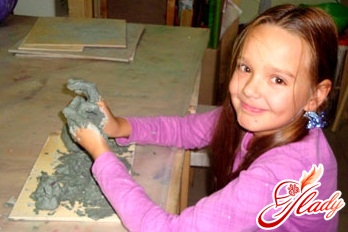
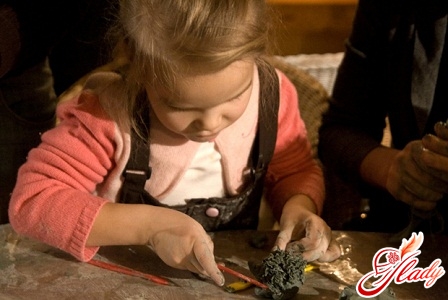 Modeling from plasticine for your little one is alreadystage passed? Does the child have sufficient confidence in basic modeling skills? If the child likes to create various things from plasticine, he will certainly enjoy such an activity as modeling from clay. Such an activity does not require large material costs, and the pleasure will bring the child incomparable. And crafts from clay can be preserved for many years. ...Read More
Modeling from plasticine for your little one is alreadystage passed? Does the child have sufficient confidence in basic modeling skills? If the child likes to create various things from plasticine, he will certainly enjoy such an activity as modeling from clay. Such an activity does not require large material costs, and the pleasure will bring the child incomparable. And crafts from clay can be preserved for many years. ...Read More
Traffic rules for children

 The primary task of all parents isensure the well-being of their children. Long before the baby is born, parents practically memorize various rules that will allow them to raise happy and healthy people. But, unfortunately, very few parents remember the need to teach their child the most important rule - the rules of conduct on the roads. But not only the health, but even the life of the child often depends on this. Timely learned traffic rules for children have saved more than one thousand children's lives. However, it is never too late to make up for this omission - and the sooner you do it, the less likely it is that your little one will suffer on the road. Parents of small children, do not rush to close this page, believing that this information is still completely irrelevant for your child and you do not need traffic rules for children. Time flies ugly fast - before you even have time to blink, the time will come when your child will start going to school on his own. And the safety of children on the road will be more important to you than ever. And even before school, knowing the rules of conduct on the road can be useful to your child more than once. Here he is walking with his mother by the hand first to the playground, then to the parking lot or the store located across the street. It would seem that the child is almost always under the constant, vigilant supervision of adults. However, children are the most unpredictable creatures on the planet, and it is often simply impossible to predict what they will do at any given second. A child can pull your hand away or run away at the moment when you literally weakened your attention for a split second. According to statistics, about half of all accidents in road accidents involving children occur in the courtyards of residential buildings or on nearby roads. The combination of "children and the road" is quite an explosive mixture and requires the most vigilant supervision from adults. ...Read More
The primary task of all parents isensure the well-being of their children. Long before the baby is born, parents practically memorize various rules that will allow them to raise happy and healthy people. But, unfortunately, very few parents remember the need to teach their child the most important rule - the rules of conduct on the roads. But not only the health, but even the life of the child often depends on this. Timely learned traffic rules for children have saved more than one thousand children's lives. However, it is never too late to make up for this omission - and the sooner you do it, the less likely it is that your little one will suffer on the road. Parents of small children, do not rush to close this page, believing that this information is still completely irrelevant for your child and you do not need traffic rules for children. Time flies ugly fast - before you even have time to blink, the time will come when your child will start going to school on his own. And the safety of children on the road will be more important to you than ever. And even before school, knowing the rules of conduct on the road can be useful to your child more than once. Here he is walking with his mother by the hand first to the playground, then to the parking lot or the store located across the street. It would seem that the child is almost always under the constant, vigilant supervision of adults. However, children are the most unpredictable creatures on the planet, and it is often simply impossible to predict what they will do at any given second. A child can pull your hand away or run away at the moment when you literally weakened your attention for a split second. According to statistics, about half of all accidents in road accidents involving children occur in the courtyards of residential buildings or on nearby roads. The combination of "children and the road" is quite an explosive mixture and requires the most vigilant supervision from adults. ...Read More
How to choose the right clothes for children
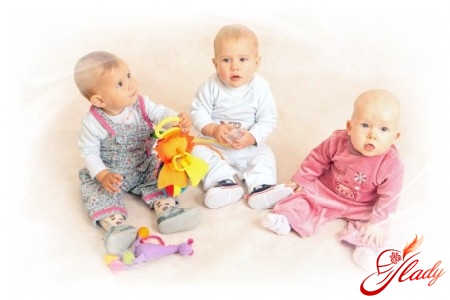 Even before the baby appeared in the family, motherswith bellies of different sizes raid children's stores, looking at, pricing and buying baby clothes. Buying children's clothes always lifts the spirits of future mothers, they try to imagine how beautiful their children will be, wearing this or that thing. However, not everyone realizes that when choosing
Even before the baby appeared in the family, motherswith bellies of different sizes raid children's stores, looking at, pricing and buying baby clothes. Buying children's clothes always lifts the spirits of future mothers, they try to imagine how beautiful their children will be, wearing this or that thing. However, not everyone realizes that when choosingone should be guided not only by the principleaesthetics, the main criteria are quality, practicality, safety and convenience. Baby clothes should be made of natural and soft fabrics, especially those worn on the bare body. No hard or fleecy fabrics that can irritate delicate skin. No synthetics, because of which the skin does not breathe and the baby sweats a lot, and this is a direct path to diaper rash, irritation and allergies to unnatural fabrics. The next criterion for choosing children's clothing is practicality or convenience. Think about how easy it will be for you to put on this or that thing, whether it will be comfortable for the baby, whether the fasteners or strings will interfere. Will the elastic bands pinch, and is the neck on sweaters and golf socks too tight - after all, oddly enough, neck injuries when dressing are the most common. The principle of beauty or aesthetics is also far from the last - after all, a beautifully dressed child always evokes smiles of affection and lifts the mood of everyone around. However, beauty must be safe – children's clothing must not have sequins, beads or other small parts that a child can tear off and swallow. Some of the most famous manufacturers of children's clothing are the Dutch companies MotionWear and Orby. Another important factor is the correct selection of clothing for a particular season, especially when it comes to winter clothing. Bulky fur coats and felt boots, in which children resembled small clumsy penguins, are a thing of the past. Now Finnish and Canadian companies offer lightweight and very comfortable thermal overalls and jackets that maintain body temperature and have a waterproof top layer that is not afraid of snow, splashes from puddles, or even dirt. Of course, this clothing is more expensive than that of Polish, Russian or Chinese manufacturers, but it is also designed for lower temperatures. You should pay attention to such manufacturers as Gusti, Deux par deux, Kerry and Reima. They have already established themselves as excellent specialists in the field of children's clothing production. It is also worth approaching the choice
.Leather shoes are, of course, better! A well-known postulate. But how hard it is to squeeze a child's foot into tight shoes or boots! And is it worth doing? After all, modern technology allows you to use materials that do not let the cold in. And special lacing allows you to fit the shoes exactly to the baby's foot. Therefore, when choosing children's shoes for a baby, dads and moms also have something to think about. However, the most important principle of choosing children's clothing is the reasonableness of parents! Children grow very quickly and especially in the first year of life, babies simply do not have time to wear everything that their mothers and grandmothers bought for them. Buy wisely, only the necessary number of clothes. This way you will save money for future purchases. And in order to save even more, you can shop in an online store. Here, as a rule, prices are 20-30% lower than in children's clothing stores, in addition, you can read reviews and choose everything you need in a calm environment. Of course, in an online store you won't be able to touch each item separately, but you will be able to order exactly the color or size that you want....Read More
Development of the child in 6 months through touch, hearing, sight

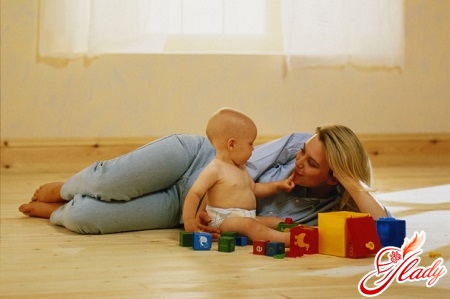
Proper development of a child at 6 months- this is a complex set of measures, constant communication with the baby, which allows him to correctly perceive the world that surrounds him. At this time, the baby can already independently roll over, sit up, sit, keeping his back straight. The baby should already recognize sounds, the taste of food, independently take food from a spoon with his lips, drink from a mug held by an adult.
...Read More
Child Safety
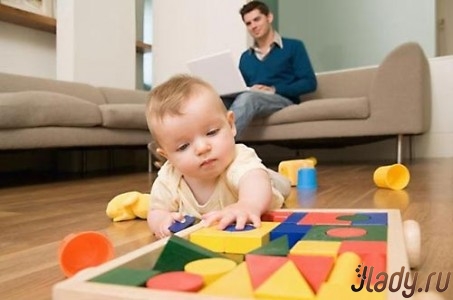
 Once your baby starts to walk on his ownwalk and move freely around the house, he often escapes your "all-seeing" eye. At these moments, the baby is in danger at every step. By listening to our advice, you can prevent accidental household injuries to your fidget. ...Read More
Once your baby starts to walk on his ownwalk and move freely around the house, he often escapes your "all-seeing" eye. At these moments, the baby is in danger at every step. By listening to our advice, you can prevent accidental household injuries to your fidget. ...Read More
Childhood fears

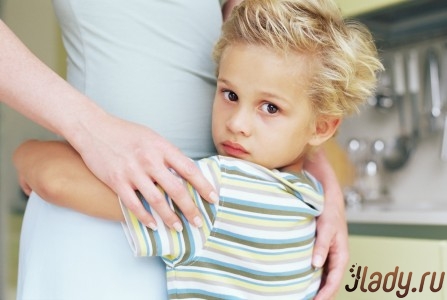 We are all afraid of something and we are sure that our fearsare quite reasonable. But when a child turns pale at the sight of a clown, cries during a routine check-up at the dentist, or clings to your hand when meeting a dog walking peacefully on a leash, it is difficult for us to understand why he is so afraid. Perhaps you are one of those lucky ones who boldly sits in the dentist’s chair, gives blood without fear, and has nothing against regular medical check-ups. But when it was time for your little one to visit the dentist for the first time, he began to cry and wriggle, trying to get out of the “scary” chair. Where did this fear come from? And how should we behave in such a situation: scold the coward for lack of courage, launch into a lengthy explanation about the painlessness of such procedures, or postpone a visit to the dentist indefinitely? A child’s fears, which may be perceived as annoying hindrances, are in fact part of his development and adaptation. As he grows, they change, reflecting the changes taking place in his life. The baby begins to crawl, learns to walk, talk, every day of his life brings something new. Everything happens so quickly! And the little child needs to cope with all the changes in mental and physical development, simultaneously absorbing a lot of information. But some situations turn out to be too difficult for him, and then he may experience anxiety and fear. But you are there and can always cheer him up and comfort him. ...Read More
We are all afraid of something and we are sure that our fearsare quite reasonable. But when a child turns pale at the sight of a clown, cries during a routine check-up at the dentist, or clings to your hand when meeting a dog walking peacefully on a leash, it is difficult for us to understand why he is so afraid. Perhaps you are one of those lucky ones who boldly sits in the dentist’s chair, gives blood without fear, and has nothing against regular medical check-ups. But when it was time for your little one to visit the dentist for the first time, he began to cry and wriggle, trying to get out of the “scary” chair. Where did this fear come from? And how should we behave in such a situation: scold the coward for lack of courage, launch into a lengthy explanation about the painlessness of such procedures, or postpone a visit to the dentist indefinitely? A child’s fears, which may be perceived as annoying hindrances, are in fact part of his development and adaptation. As he grows, they change, reflecting the changes taking place in his life. The baby begins to crawl, learns to walk, talk, every day of his life brings something new. Everything happens so quickly! And the little child needs to cope with all the changes in mental and physical development, simultaneously absorbing a lot of information. But some situations turn out to be too difficult for him, and then he may experience anxiety and fear. But you are there and can always cheer him up and comfort him. ...Read More
Child 8 months: development, achievements
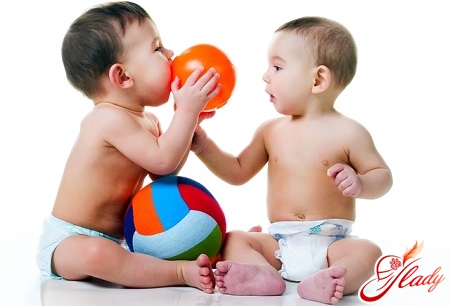
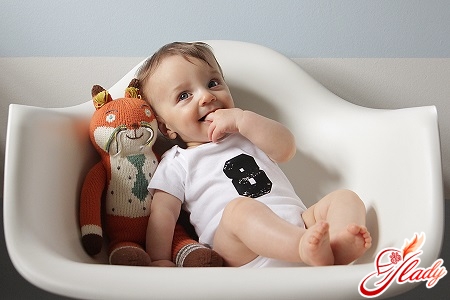
The child at 8 months is hyperactive and showsconscious interest in the world around him. The ability to crawl allows the baby to study new objects that come his way. Crawling on all fours is also a workout for the muscles of the legs and back, which helps to strengthen them for future walking skills. At this age, the child learns to maintain balance and stand, holding on to a support. The baby already sits well, takes the right toy, moves objects from one hand to another. The child can consciously show an adult a toy that he needs to reach. At 8 months, the baby already clearly and loudly pronounces syllables, expresses joy and anger, squealing at the same time, recognizes familiar people in photographs. At the request of adults, he claps his hands, waves his hand goodbye. Carefully watches moving objects on the TV screen or outside the window. The most interesting activity for an eight-month-old baby is throwing toys on the floor - this is how he learns the sounds of falling and the parents' reaction to this action. When adults return the toys to their place, the baby throws them again, thus attracting the adults' attention to himself.
...Read More
A birthday present for a child. How not to be mistaken?

 Probably every person had to at leastonce in a lifetime birthday present for a child, even if he or she does not have children yet. Incidentally, it is always more difficult for people who have not yet become parents to choose a gift for a child. Who knows what will please the flower of life? Of course, you can take the path of least resistance and bring money - like, let the parents decide for themselves what the child needs more. However, the child will certainly be happier with a gift chosen with love than an envelope with money. Well, maybe with the exception of teenagers and very young people, of course. In fact, choosing a gift is not so difficult if you remember two basic rules. The first rule says that you need to approach the choice of a gift with imagination - do not be afraid to experiment, the process is quite creative. And the second rule calls for never losing sight of the age of the child for whom you are choosing a gift. Well, if you know at least something about the child's interests and skills - you are generally lucky.
Probably every person had to at leastonce in a lifetime birthday present for a child, even if he or she does not have children yet. Incidentally, it is always more difficult for people who have not yet become parents to choose a gift for a child. Who knows what will please the flower of life? Of course, you can take the path of least resistance and bring money - like, let the parents decide for themselves what the child needs more. However, the child will certainly be happier with a gift chosen with love than an envelope with money. Well, maybe with the exception of teenagers and very young people, of course. In fact, choosing a gift is not so difficult if you remember two basic rules. The first rule says that you need to approach the choice of a gift with imagination - do not be afraid to experiment, the process is quite creative. And the second rule calls for never losing sight of the age of the child for whom you are choosing a gift. Well, if you know at least something about the child's interests and skills - you are generally lucky....Read More
Tablet for boys and girls ... as well as their parents
 One of the main desires of any child is to besimilar to their elders. Do your parents have a trendy tablet? That means I should have one too! As a result, you have to go to the store to buy a new device for yourself, which can cost a lot of money. But there is another option - you can buy a special tablet for your child, which is more suitable in price and age.
One of the main desires of any child is to besimilar to their elders. Do your parents have a trendy tablet? That means I should have one too! As a result, you have to go to the store to buy a new device for yourself, which can cost a lot of money. But there is another option - you can buy a special tablet for your child, which is more suitable in price and age. The main difference between children's tablets and regular ones isbright colors of the case and a user-friendly interface, designed specifically for a child. For example, here is a new product from the Turbo brand, a children's tablet - MonsterPad. The case is bright, similar in colors to a zebra or leopard, to choose from - it looks very fresh and unusual. Its characteristics are also quite good - perhaps not every "adult" device can boast of such.
The main difference between children's tablets and regular ones isbright colors of the case and a user-friendly interface, designed specifically for a child. For example, here is a new product from the Turbo brand, a children's tablet - MonsterPad. The case is bright, similar in colors to a zebra or leopard, to choose from - it looks very fresh and unusual. Its characteristics are also quite good - perhaps not every "adult" device can boast of such.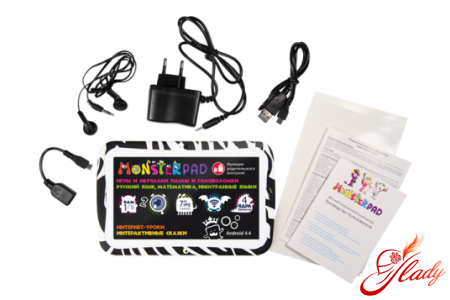 But the main difference with MonsterPad is its parentcontrol! You can set up the tablet so that your child cannot play at night or watch everything on the Internet. It is enough to set the time when you can go online, participate in virtual races or just turn on MonsterPad. On a children's tablet, you can not only play and have fun, but also study. Math problems, dictation in Russian, key foreign languages and many other applications that help your child develop. And all in the form of a game, you will not have to force the child to do this.
But the main difference with MonsterPad is its parentcontrol! You can set up the tablet so that your child cannot play at night or watch everything on the Internet. It is enough to set the time when you can go online, participate in virtual races or just turn on MonsterPad. On a children's tablet, you can not only play and have fun, but also study. Math problems, dictation in Russian, key foreign languages and many other applications that help your child develop. And all in the form of a game, you will not have to force the child to do this. Need more programs?You can go to a special app store on the Internet. Although most people do not have such a desire, the device already has plenty of everything. If your child has already grown up, the children's shell can be easily disabled. And it will be an ordinary Android tablet with an original and bright design. By the way, now, with a toy of such power, parents themselves may have a desire to sometimes use MonsterPad! Why not, the tablet is universal.
Need more programs?You can go to a special app store on the Internet. Although most people do not have such a desire, the device already has plenty of everything. If your child has already grown up, the children's shell can be easily disabled. And it will be an ordinary Android tablet with an original and bright design. By the way, now, with a toy of such power, parents themselves may have a desire to sometimes use MonsterPad! Why not, the tablet is universal. Want to know more? Go visit the tablet site
Want to know more? Go visit the tablet site...Read More